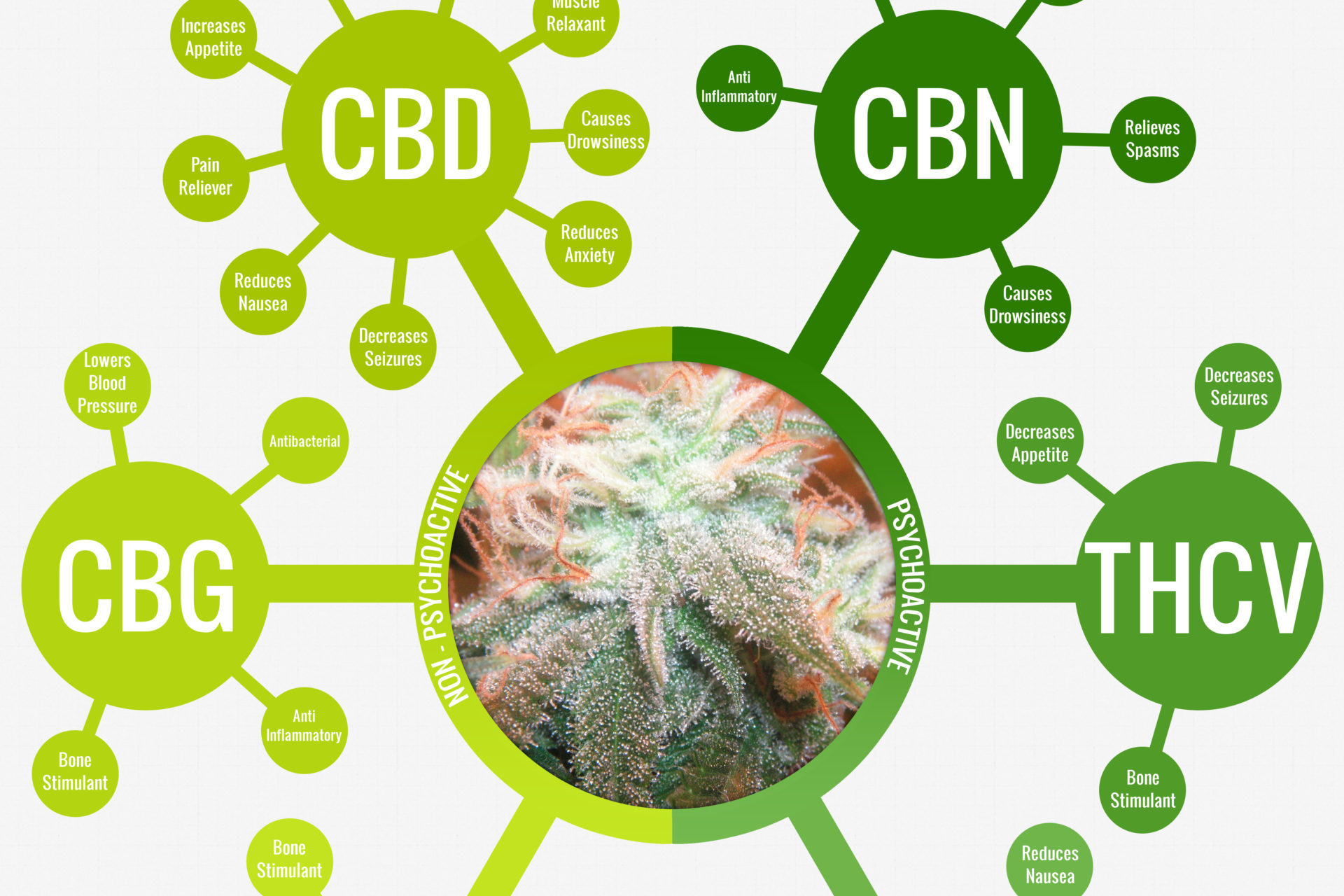Exploring the Intricacies of Cannabinoid Effects: Pain Relief, Mood Regulation, Anti-Inflammatory Properties, and Beyond
Cannabinoids have emerged as a subject of interest due to their remarkable effects on the human body. These active compounds, present in cannabis, engage with the endocannabinoid system. A complex interplay of receptors and neurotransmitters that plays a pivotal role in upholding equilibrium and homeostasis within the body. In this comprehensive article, we plunge into the captivating realm of cannabinoids and their far-reaching impact on various physiological processes.

The Mechanism of Cannabinoid Action
At the core of the discussion lies the endocannabinoid system, encompassing two fundamental receptor types: CB1 and CB2 receptors. While CB1 receptors are normally situated within the brain and central nervous system, CB2 receptors are more commonly found in immune cells and peripheral tissues. Once cannabinoids enter the body, they establish a connection with these receptors, sparking a series of diverse effects.
Pioneering Pain Relief and Management
Undoubtedly, one of the most well known attributes of cannabinoids is their proficiency in mitigating pain. By engaging CB1 receptors in the brain and spinal cord, cannabinoids have the ability to decrease the perception of pain. This distinct capability has propelled the application of medical cannabis for conditions marked by chronic pain, including arthritis and neuropathy.
Navigating Mood Regulation and Anxiety Alleviation
The impact of cannabinoids also extends to mood and emotions. Through modulation of brain regions accountable for mood, stress, and anxiety regulation, cannabinoids extend a potential lifeline to individuals battling with mood disorders. Ongoing research indicates that specific cannabinoids might wield anxiolytic effects, thereby assisting individuals in managing their anxiety.
Stimulating and Regulating Appetite
For individuals wrestling with appetite loss due to medical ailments or medical treatments such as chemotherapy, cannabinoids manifest as a beacon of relief. Their interaction with CB1 receptors in the brain’s appetite-regulating centers, particularly the cannabinoid THC, kindles appetite stimulation, effectively counteracting unintended weight loss.
Unveiling Anti-Inflammatory and Immune Modulation
Notably, cannabinoids—particularly the renowned CBD—showcase remarkable anti-inflammatory properties by engaging CB2 receptors within immune cells. This engagement serves as a key modulator of immune responses, quelling inflammation and positioning cannabinoids as a prospective avenue for managing conditions characterized by persistent inflammation.
Championing Neuroprotection and Cognitive Well-being
Dive into the realm of research, and one uncovers the tantalizing potential of cannabinoids in safeguarding brain cells from damage and degeneration. This facet offers hope for individuals afflicted with neurodegenerative diseases, potentially heralding a novel era of therapeutic intervention.
Combatting Nausea and Easing Vomiting
Certain cannabinoids have earned recognition for their proficiency in alleviating nausea and vomiting, rendering them invaluable for individuals undergoing treatments such as chemotherapy. By alleviating these distressing side effects, cannabinoids significantly enhance the quality of life for affected patients.
Revolutionizing Seizure Control
One of the most remarkable feats achieved by cannabinoids lies in the management of seizures, particularly in the context of specific epilepsy forms. The spotlight falls on CBD, which has emerged as a beacon of hope in reducing the frequency and intensity of seizures—a beacon particularly significant for patients who have found traditional treatments ineffective.
Harmonizing Sleep Patterns
Cannabinoids exert influence over sleep patterns by interacting with receptors intrinsic to the regulation of the sleep-wake cycle. This unique trait paves the way for addressing sleep disorders and ushering in improved sleep quality, thereby enhancing overall well-being.
In Retrospect: Cannabinoids as a Fountain of Therapeutic Potential
In summation, the intricate dance between cannabinoids and the endocannabinoid system casts a wide array of effects on the human body. Ranging from pain alleviation and mood regulation to anti-inflammatory prowess and seizure management, these compounds harbor profound therapeutic potential. As the scope of research expands and our understanding deepens, the applications of cannabinoids in the domains of medicine and wellness stand poised to reach unparalleled heights.
For a deeper dive into the subject of cannabinoids and their effects, we recommend consulting authoritative sources such as:
- National Institute on Drug Abuse (NIDA)
- National Institutes of Health (NIH)
- PubMed Central (PMC)
- World Health Organization (WHO)
It is important to note that individual responses to cannabinoids can exhibit variance. Prior to contemplating any cannabinoid-based treatments, we strongly advise seeking consultation with a qualified healthcare professional.
© 2023 – Stoner Circle. All Rights Reserved.
